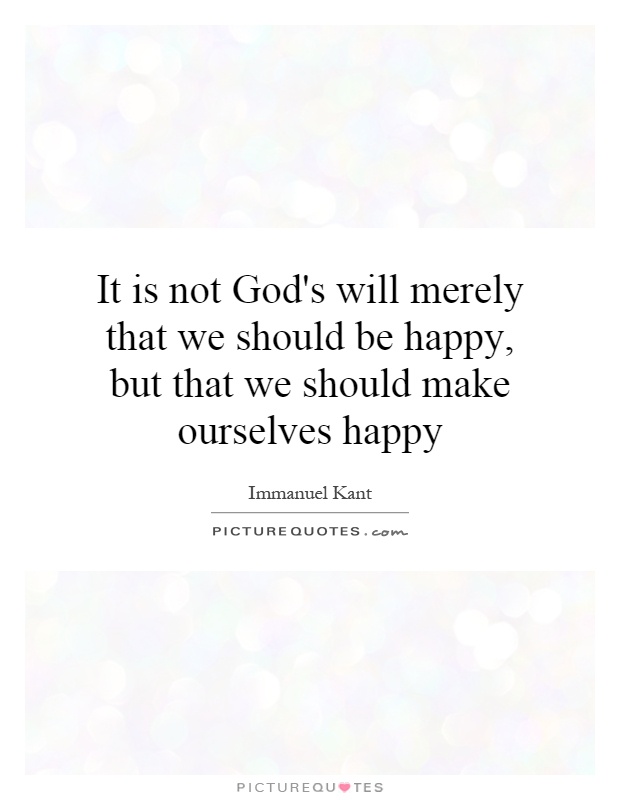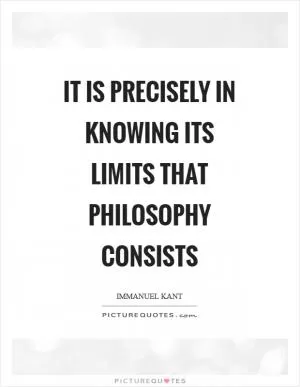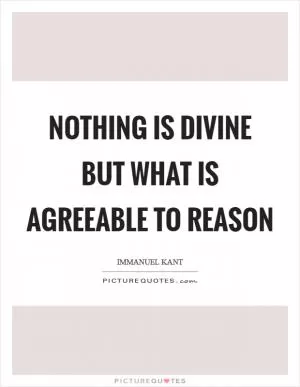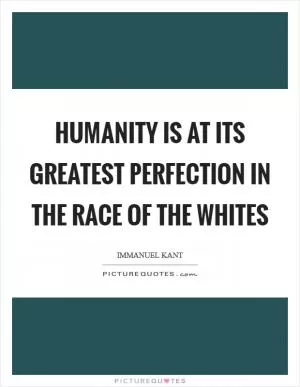It is not God's will merely that we should be happy, but that we should make ourselves happy

It is not God's will merely that we should be happy, but that we should make ourselves happy
Immanuel Kant, a renowned German philosopher, is often associated with his moral philosophy that emphasizes the importance of duty and reason in guiding human actions. In his works, Kant explores the concept of happiness and its relationship to morality, arguing that true happiness is not merely a result of external circumstances or divine intervention, but rather a product of our own efforts and choices.Kant believed that human beings have a moral duty to cultivate their own happiness through the exercise of reason and the pursuit of virtue. He rejected the idea that happiness could be achieved through the fulfillment of desires or the pursuit of pleasure, instead arguing that true happiness is found in the fulfillment of our moral duties and the realization of our highest potential as rational beings.
According to Kant, God's will is not simply for us to passively receive happiness as a gift, but rather to actively engage in the process of self-improvement and moral development in order to achieve true happiness. This idea is reflected in Kant's famous statement that "It is not God's will merely that we should be happy, but that we should make ourselves happy."
For Kant, making ourselves happy involves living in accordance with the moral law and striving to cultivate virtues such as honesty, integrity, and compassion. By acting in accordance with reason and duty, we not only fulfill our moral obligations but also contribute to our own happiness and well-being.
Kant's emphasis on the importance of self-improvement and moral development in the pursuit of happiness has had a lasting impact on moral philosophy and continues to influence contemporary discussions on the nature of happiness and the role of reason in guiding human actions. By recognizing the importance of personal agency and moral responsibility in the pursuit of happiness, Kant offers a compelling vision of human flourishing that remains relevant and inspiring to this day.












 Friendship Quotes
Friendship Quotes Love Quotes
Love Quotes Life Quotes
Life Quotes Funny Quotes
Funny Quotes Motivational Quotes
Motivational Quotes Inspirational Quotes
Inspirational Quotes